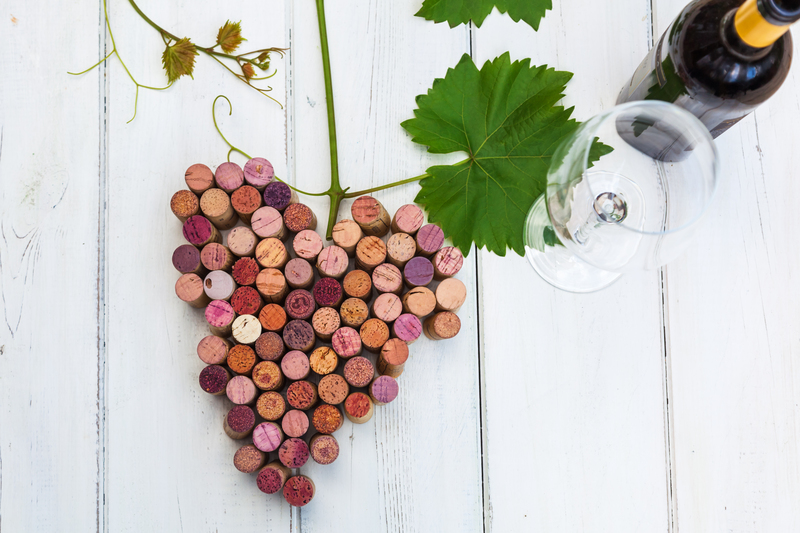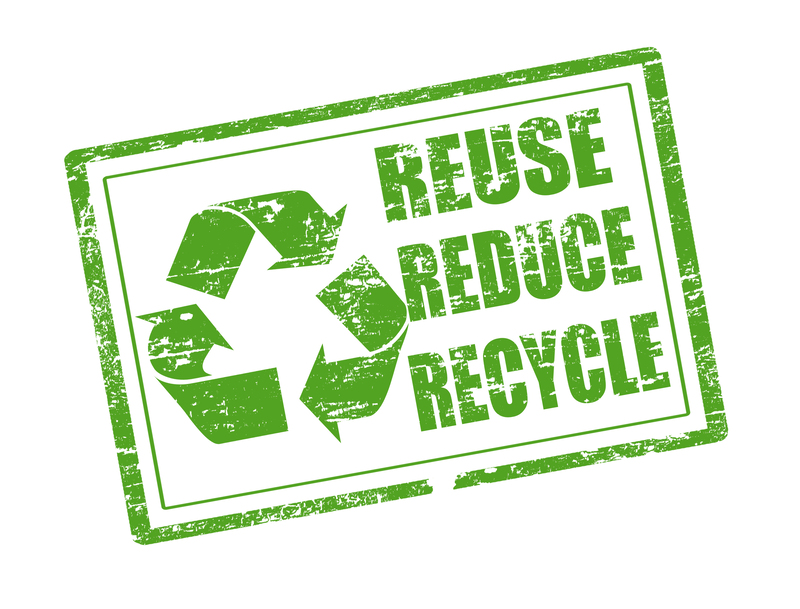Green Your Kitchen with Recycled Pots and Pans: A Comprehensive Guide
Are you passionate about sustainability and eager to make your kitchen more eco-friendly? Embracing recycled pots and pans is one of the most impactful and accessible ways to create a green kitchen. In this comprehensive guide, we'll explore everything you need to know about greening your kitchen with recycled cookware: the benefits, best materials, brand options, care tips, and how to responsibly recycle your old kitchenware.

Why Choose Recycled Pots and Pans?
Cooking utensils, especially pots and pans made from recycled materials, offer a double benefit: they reduce landfill waste and demand for raw resources, and they often perform just as well as traditional cookware. Recycled kitchenware has come a long way, with brands perfecting techniques that blend eco-consciousness with durability and style.
The Environmental Impact of Traditional Cookware
- Resource Extraction: Mining for metals like aluminum and stainless steel demands high energy and water usage, resulting in environmental degradation.
- Manufacturing Pollution: The creation of virgin-metal cookware emits greenhouse gases and toxins.
- Waste Generation: Worn out pots and pans often end up in landfills, taking centuries to decompose.
By contrast, choosing recycled cookware actively reduces pollution and conserves precious resources.
Understanding Recycled Cookware: What Does "Recycled" Really Mean?
When you see cookware labeled as "recycled", it typically refers to items made from previously used metals such as aluminum or stainless steel, which are melted down, purified, and remolded.
Types of Recycled Materials Used in Cookware
- Recycled Aluminum: Lightweight, excellent heat conductor, and can be endlessly recycled without loss of quality.
- Recycled Stainless Steel: Highly durable, resistant to corrosion, and widely available in post-consumer recycled (PCR) forms.
- Recycled Cast Iron: Less common, but some specialty brands offer cast iron made from reclaimed sources.
- Recycled Nonstick Surfaces: Some newer pots and pans use recycled ceramic or other materials for eco-friendly nonstick coatings.
When shopping, look for labels that specify the percentage of recycled content. Brands utilizing a high proportion of post-consumer recycled materials demonstrate a greater commitment to sustainability.
Benefits of Using Recycled Pots and Pans
- Eco-Friendly: Reduces demand for virgin metal extraction and keeps discarded metal out of landfills.
- Energy Savings: Recycling metals requires far less energy than producing new materials.
- High Quality: Modern processes yield recycled kitchenware rivaling, if not surpassing, the performance of traditional pots and pans.
- Unique Aesthetics: Many recycled cookware lines feature stylish, contemporary designs.
- Ethical Choice: Buying recycled goods supports circular economy principles and responsible manufacturing.
Popular Brands and Recycled Cookware Options
Over the years, many reputable brands have embraced sustainable manufacturing, producing high-quality recycled pots and pans that are accessible to home cooks.
Top Eco-Friendly Cookware Brands
-
GreenPan:
- Makes nonstick cookware from upcycled and recycled aluminum.
- Features Thermolon ceramic nonstick coating, derived from sand and free from toxic chemicals like PFAS and PFOA.
- Manufacturing processes release 60% fewer CO2 emissions than traditional nonstick pans.
-
SCANPAN:
- Danish brand famous for hand-casting cookware from at least 50% recycled aluminum.
- Exceptional durability and heat distribution.
-
Revereware (Revere):
- Classic American brand offering stainless steel cookware lines featuring recycled content.
- Durable, with iconic copper bottom and fully recyclable at the end-of-life.
-
Chantal:
- Offers a selection of cookware made from recycled steel, often in vibrant, enamel-coated colors.
- Long-lasting and beautiful for display and cooking alike.
-
Neoflam:
- Utilizes recycled aluminum for their eco-friendly pan lines.
- Ceramic-based, nonstick coating without harmful chemicals.
Pro Tip: When searching for the best recycled kitchen pots and pans, check for manufacturing transparency, eco-certifications (like Cradle to Cradle or GreenGuard), and customer reviews.
How to Choose the Right Recycled Pots and Pans for Your Kitchen
Selecting eco-friendly cookware involves more than a "recycled" label. Consider your cooking style, kitchen needs, and the following factors:
- Material: Decide between recycled aluminum, stainless steel, or cast iron based on desired durability and heating properties.
- Nonstick Needs: If you prefer nonstick, seek brands that provide toxin-free, environmentally friendly coatings made from recycled sources.
- Cooktop Compatibility: Ensure pans are suitable for induction, radiant, or gas stoves if needed.
- Size and Versatility: Start with a recycled saute pan or saucepan and build up to a full set as your budget allows.
- Sustainability Certifications: Look for verifiable certifications to guarantee true eco-friendly claims.
Quick Comparison: Recycled Aluminum vs. Recycled Stainless Steel
- Recycled Aluminum: Lighter weight, faster heat-up, susceptible to scratches, great for everyday cooking.
- Recycled Stainless Steel: Tough, resistant to corrosion, maintains heat well, ideal for searing and browning.
Choose one or both depending on your primary cooking habits.
Tips for Caring for Recycled Cookware
Proper care of your eco-friendly pots and pans ensures they last for years, reducing your environmental impact even further. Here are some essential care tips:
- Avoid Abrasives: Use wooden or silicone utensils and soft sponges to preserve nonstick and metal surfaces.
- Gentle Cleaning: Hand-wash when possible. Even if labeled dishwasher-safe, frequent machine washing may degrade coatings or finishes over time.
- Season as Needed: For recycled cast iron, season regularly with vegetable oil to maintain the nonstick surface and prevent rust.
- Low to Medium Heat: Most recycled aluminum and ceramic-coated pans work best at moderate temperatures.
- Immediate Drying: Dry your pots and pans thoroughly after washing to prevent water spots and extend lifespan.
Investing a little care in your sustainable cookware rewards you with years of reliable performance.
Creative Ways to Reuse and Upcycle Old Pots and Pans
If you're replacing your old cookware with recycled pots and pans, don't just toss your worn-out items. Many pots and pans can find new life with a bit of creativity!
Upcycling Inspiration for Old Cookware
- Planters: Turn leaky or burnt pans into quirky pots for herbs and succulents. Drill drainage holes and decorate as desired.
- Bird Baths or Feeders: Shallow pans work perfectly in your garden or balcony for feathered visitors.
- Wall Art: Arrange mismatched lids, skillets, or saucepans on the wall for a rustic kitchen accent.
- Tool Storage: Deep pots can become caddies for gardening tools or utensils in the garage.
- Gift Containers: Fill an old pan with food goodies and wrap it up as a unique basket for gifts.
With a little imagination, old pots and pans become functional decor or garden accessories, further reducing waste.
How to Responsibly Recycle Your Pots and Pans
If your old cookware is beyond upcycling, follow these guidelines to recycle them responsibly:
Step-By-Step: Recycling Kitchen Cookware
- Identify the material: Most recycling centers accept stainless steel and aluminum, but may reject nonstick or composite pans.
- Remove non-metal parts: Detach plastic handles, glass lids, or other non-recyclable components.
- Contact your local recycling center: Ask about drop-off policies for old kitchenware.
- Check with scrap yards: Some accept pans for metal recycling even if your regular recycler does not.
- Donate usable cookware: If your pots and pans are still functional, consider donating to a local shelter, thrift store, or community organization before recycling.
Responsible disposal ensures your old pots and pans are recycled into new products, closing the loop on kitchen sustainability.
Cooking Green: Recipes for a Sustainable Kitchen
Equipping your kitchen with recycled pans and pots is only the beginning! To maximize eco-friendly efforts:
- Opt for local, seasonal ingredients: Reducing transportation and packaging shrinks your kitchen's environmental footprint.
- Cook in bulk: Reduces energy usage and food waste.
- Use every bit: Save vegetable scraps and bones for homemade stock - a perfect use for those new recycled stockpots!
By thoughtfully sourcing both your cookware and your meals, you make significant strides towards an Earth-friendly home.

A Look to the Future: The Expanding World of Recycled Cookware
As technology advances, even greater sustainable kitchen cookware options are emerging. Researchers and manufacturers are investing in:
- Recycled carbon steel pans for woks and special applications.
- Next-generation nonstick coatings derived from recycled glass or natural minerals.
- Ultra-efficient manufacturing that Further reduces energy and waste from production.
The movement to green your kitchen with recycled pots and pans represents not just a trend, but a lasting shift towards a more sustainable future for cooking and home life.
Conclusion: Make Your Kitchen Greener Today
Transforming your kitchen with recycled pots and pans is easier than ever, and every small step counts. By choosing recycled materials, caring for your cookware, recycling responsibly, and preparing food sustainably, you're turning your cooking space into a hub of environmental action.
Ready to start your green kitchen journey? Explore recycled cookware options, support eco-conscious brands, and lead the way in sustainable home living. Together, we can cook up a better planet--one pan at a time.